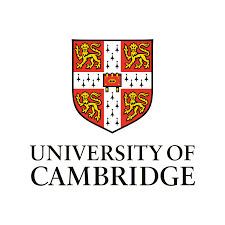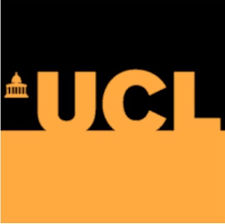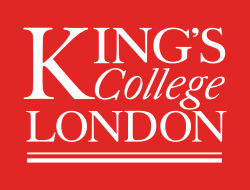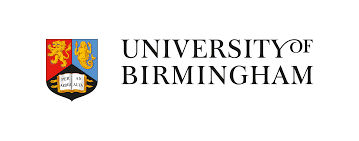9997 Masters Courses in UK - Find Universities,Deadlines, Eligibility & Fees
Latest Update: In May 2025, UK universities reported a 12% rise in international master’s applications, driven by high-quality education and global career opportunities.
Pursuing a Masters in the UK is a top choice for international students, with over 600,000 enrolled in 2025 alone, according to UKCISA. Renowned for academic excellence, UK universities offer 1-year master's programs across disciplines like business, engineering, data science, and healthcare.
The UK’s Graduate Route visa allows students to stay and work for up to 2 years post-study, enhancing job prospects globally. With world-ranked institutions like Oxford, Cambridge, and Imperial College London, the UK blends quality education with cultural diversity making it a premier destination for higher education in 2025.
Masters in UK - Overview
The UK offers a diverse array of Master’s courses that cater to various disciplines. Students flock to the UK for its high-quality education, globally recognized degrees, and the opportunity to study in a culturally rich environment.
Master's programs in the UK are known for their rigorous academic standards, flexibility, and exposure to global perspectives. These programs typically last one year for full-time students, with options available for part-time study as well.
Why Choose the UK for Masters?
The UK remains one of the most sought-after destinations for international students. With its rich academic history, strong ties to global industries, and welcoming atmosphere, it’s easy to see why so many choose the UK for higher education.
- Globally Recognized Degrees: UK universities are among the best in the world, offering degrees that are highly valued across the globe.
- Research Opportunities: The UK has a strong emphasis on research, with access to cutting-edge facilities and academic staff renowned in their fields.
- Cultural Diversity: Students from all over the world converge in the UK, offering a rich, multicultural experience that adds value to academic life.
- Shorter Duration: Master's programs in the UK are generally shorter than those in other countries, typically taking one year of full-time study, which can be cost-effective.
- Language of Instruction: English is the primary language of instruction, making it easier for international students to integrate academically and socially.
Types of Master's Degrees in the UK
The UK offers various types of Master's degrees, each catering to different academic interests and career paths. Understanding these options helps prospective students choose the most suitable program for their goals.
Common Master's Degrees in the UK
- Master of Science (MSc): Focuses on scientific, technical, and professional subjects, often with a research component.
- Master of Arts (MA): Typically awarded for courses in the humanities, social sciences, and arts. It may include both theoretical and practical components.
- Master of Business Administration (MBA): A highly specialized degree aimed at individuals pursuing leadership roles in business, management, and entrepreneurship.
- Master of Research (MRes): A research-based Master's that prepares students for doctoral study or careers in research institutions.
- Master of Philosophy (MPhil): A research-based degree usually focused on specialized subjects, sometimes preceding a Ph.D.
- Postgraduate Diploma/Certificate (PGDip/PGCert): These are shorter courses that focus on professional skills and provide postgraduate qualifications without the research component.
Eligibility Criteria for Masters in UK
To pursue a Master’s degree in the UK, international students must meet specific academic and language criteria. These requirements ensure that students are academically prepared and equipped to succeed in graduate-level education within a competitive environment.
Academic Requirements
To be eligible for a Master’s in the UK, students need to meet the following academic criteria:
- Undergraduate Degree: A relevant undergraduate degree is required, typically a 2:1 degree or its international equivalent. This means a strong academic record with a solid foundation in the chosen field of study.
- Program-Specific Prerequisites: Each program may have its own subject-specific requirements. For example:
- A Master’s in Engineering typically requires a Bachelor’s degree in a related engineering discipline.
- A Master’s in Economics often necessitates a background in economics or mathematics to ensure that students are prepared for the theoretical and quantitative aspects of the course.
- GPA Requirements: Some universities may set minimum GPA thresholds for certain programs, although this varies depending on the institution and the competitiveness of the program.
English Language Requirements
Proficiency in English is essential for all international students applying to study in the UK. Universities typically require one of the following:
- IELTS (International English Language Testing System): A score of 6.5 to 7.0 overall is common, with no individual section scoring below 6.0.
- TOEFL (Test of English as a Foreign Language): Some universities accept TOEFL scores, with minimum required scores typically ranging from 90 to 100.
- PTE (Pearson Test of English): An overall score of 58-65 is usually required, depending on the program.
- Other Accepted Qualifications:
- Cambridge English Qualifications (e.g., C1 Advanced, C2 Proficiency) may be accepted.
- Degree from an English-medium Institution: If a student’s undergraduate degree was taught in English, some universities may waive the English language test requirement.
Other Admission Requirements
In addition to academic and English language requirements, students may need to meet other specific admission criteria depending on the course. These may include:
- Professional Work Experience: For programs like an MBA, universities often require applicants to have relevant professional experience (usually 2-3 years).
- Portfolio (Creative Courses): Some programs in the arts or design fields may require a portfolio showcasing previous work.
- Research Proposal (Research-Based Programs): For MRes or MPhil programs, applicants may need to submit a research proposal outlining their intended area of study, demonstrating their research skills and alignment with the program’s focus.
You can find more detailed information on the Major Requirements for Studying in the UK, including visa and financial documentation, which will help you understand the complete process of applying to study in the UK.
Admission Process for Masters in UK
The application process for a Master’s in the UK is a step-by-step journey that involves research, document preparation, submission of applications, and interviews. Understanding each stage helps to ensure a smooth transition to studying in the UK.
Step 1: Researching Universities and Courses
- The first step in the admission process is to research universities and the courses they offer. This involves looking into the reputation of the university, the course structure, and the specializations available.
- Most universities provide comprehensive details on their websites, including the course modules, faculty, and post-graduation employment rates.
Step 2: Preparing and Submitting Your Application
- Once you’ve chosen a course, gather the necessary documents for submission. These typically include your academic transcripts, CV, Statement of Purpose (SOP), Letters of Recommendation (LOR), and proof of English proficiency.
- Applications are usually submitted through UCAS for undergraduate courses, but for Master’s degrees, many universities accept direct applications via their own portals.
Step 3: Interview Process (If applicable)
- Some Master’s programs, especially competitive ones like the MBA or specialized research courses, may require an interview as part of the selection process.
- Interviews help universities assess your motivation, communication skills, and whether you're a good fit for the program.
Step 4: Receiving an Offer
- After you’ve submitted your application, you may receive an offer from the university. This could be either a conditional or unconditional offer.
- A conditional offer means you must meet specific requirements before being accepted, such as completing your current degree or achieving a certain IELTS score.
Application Deadlines & Intakes for Masters in UK
Understanding the application deadlines and intake periods for UK universities is crucial. With the primary intake in September/October and a secondary intake in January, staying on top of deadlines ensures timely application submission.
Key Application Deadlines in UK
- Application deadlines for most UK universities fall between January and June, with September being the primary intake period.
- Some programs, especially highly competitive ones, may have earlier deadlines, so it's essential to plan and apply well in advance.
Intakes in UK Universities
- Most universities in the UK offer two main intakes: September/October, January and May. The September intake is the largest, and most students apply for this.
- However, the January intake offers an opportunity for students who miss the primary intake to still begin their studies within the same academic year.
Top Universities for Masters in UK
The UK is home to some of the world’s most prestigious universities. Whether you're looking for business, engineering, or arts, these universities offer a wide range of high-quality Master’s programs, each with its own unique strengths.
Here is a table with the top 10 universities for Masters in the UK:
| University | QS World Ranking 2025 | Approximate Tuition Fees |
| Imperial College London | #2 | GBP 37,500 (INR 41,25,000) |
| University of Oxford | #3 | GBP 33,000 (INR 36,30,000) |
| University of Cambridge | #5 | GBP 34,500 (INR 37,95,000) |
| University College London (UCL) | #9 | GBP 30,500 (INR 33,55,000) |
| University of Edinburgh | #27 | GBP 27,000 (INR 29,70,000) |
| University of Manchester | #34 | GBP 28,000 (INR 30,80,000) |
| King's College London | #40 | GBP 29,000 (INR 31,90,000) |
| London School of Economics (LSE) | #50 | GBP 32,000 (INR 35,20,000) |
| University of Bristol | #54 | GBP 27,000 (INR 29,70,000) |
| University of Warwick | #69 | GBP 28,000 (INR 30,80,000) |
For a detailed breakdown of rankings and tuition fees, check out Best Universities in the UK with Ranking & Fees to compare top institutions and find the best fit for your studies.
Masters Specializations in the UK
UK universities offer a broad spectrum of Master’s specializations, catering to various fields such as business, engineering, and arts. Whether you're looking to advance in a technical field or explore creative disciplines, there’s a program to fit your career goals.
Business & Management
- The UK is a leader in business education, with many universities offering top-tier MBA programs and specialized Master’s courses in management, finance, marketing, and entrepreneurship.
- Universities like LSE, Oxford, and Cambridge are known for their business programs that offer a global perspective on management and leadership.
Engineering & Technology
- Master’s programs in engineering are among the best globally, with specialized fields in mechanical, civil, electrical, and software engineering.
- The UK is home to some of the world’s most prestigious engineering schools, such as Imperial College London and the University of Cambridge, offering cutting-edge facilities and research opportunities.
Arts, Humanities, and Social Sciences
- If you are interested in creative fields or social sciences, the UK offers diverse programs in literature, history, psychology, and sociology.
- Universities like UCL and the University of Edinburgh offer top programs that balance practical skills with theoretical knowledge, preparing graduates for careers in academia, the arts, and social services.
Science & Research
- The UK is renowned for its advanced research in fields like biology, chemistry, and physics.
- Many programs allow students to work alongside world-leading researchers on groundbreaking projects, with universities like Oxford and Imperial leading the charge in research-driven Master’s programs.
Scholarships and Financial Aid for Masters in UK
The UK offers various scholarships and financial aid options to help students manage the cost of their studies. These range from government-funded scholarships to university-specific merit-based awards, making a Master’s degree in the UK more accessible.
| Scholarship | Offered By | Award |
| Chevening Scholarship | UK Government | Full tuition, living expenses, and travel costs |
| Commonwealth Scholarship | UK Government | Full tuition, airfare, and living stipend |
| GREAT Scholarship | UK Government & British Council | GBP 10,000 towards tuition fees |
| University of Oxford – Clarendon Scholarship | University of Oxford | Full tuition and annual stipend |
| University of Cambridge – Gates Cambridge Scholarship | University of Cambridge | Full tuition, living allowance, and travel costs |
| Imperial College London – President’s Scholarship | Imperial College London | Full tuition and annual stipend |
| London School of Economics (LSE) – Graduate Support Scheme | LSE | Partial funding based on financial need |
| University College London (UCL) – Global Masters Scholarship | UCL | Up to GBP 15,000 for tuition fees |
| University of Warwick – Chancellor’s International Scholarship | University of Warwick | Full tuition and a maintenance stipend |
| University of Edinburgh – Edinburgh Global Masters Scholarship | University of Edinburgh | GBP 10,000 towards tuition fees |
If you're an Indian student looking for more opportunities in 2025, you can explore the Top 10 UK Scholarships for Indian Students in 2025, which offer a range of financial support to help you pursue your studies in the UK.
Cost of Studying Masters in UK
Studying in the UK can be expensive, but various options are available to manage costs. Tuition fees vary by university and program, while living expenses depend on the city. Scholarships and financial aid can help reduce the overall cost of education.
Tuition Fees for International Students
The average tuition fees for a Master’s program in the UK range from GBP 10,000 to GBP 38,000 (INR 11,00,000 to INR 41,80,000) per year, depending on the university and course.
Specialized programs like MBAs, law, and engineering tend to be more expensive, often exceeding GBP 35,000 (INR 38,50,000). For Indian students planning to study in the UK, understanding the complete breakdown of expenses including tuition, living costs, and additional fees is crucial for financial planning.
For Indian students planning to study in the UK, understanding the complete breakdown of expenses—including tuition, living costs, and additional fees—is crucial for financial planning. [Cost of Study in UK for Indian Students in 2024]
Living Expenses in the UK
Living costs vary depending on the city:
- London: Students typically need GBP 12,000 to GBP 15,000 (INR 13,20,000 to INR 16,50,000) annually for accommodation, food, transportation, and other essentials.
- Other Major Cities (Manchester, Birmingham, Edinburgh, etc.): Living costs are slightly lower, averaging GBP 8,000 to GBP 12,000 (INR 8,80,000 to INR 13,20,000) per year.
- Smaller Towns: Some areas offer more affordable living options, where students can manage with GBP 6,300 to GBP 9,000 (INR 6,93,000 to INR 9,90,000) annually.
To plan your budget effectively, it's essential to understand the detailed breakdown of living expenses, including accommodation, transportation, and daily costs. [Cost of Living in the United Kingdom (UK) in 2025 for Indian Students]
Financial Support and Loans
There are several ways to finance a Master’s degree in the UK:
- Education Loans: Many Indian banks provide education loans covering tuition fees and living costs. Loan amounts range from INR 20L to INR 50L, with repayment starting after graduation.
- University Financial Aid: Many UK universities offer partial or full tuition waivers based on merit or financial need.
- Part-Time Work: International students can work up to 20 hours per week during term time and full-time during holidays, helping them manage day-to-day expenses.
Job Opportunities & Salary After Masters in UK
Graduating with a Master’s degree from a UK university opens doors to numerous career opportunities, particularly in global business hubs like London, Manchester, and Edinburgh.
The UK’s post-study work visa policy allows international students to stay and work after graduation, making it an attractive destination for career growth. Salaries vary depending on the industry, job role, and location.
| Job Role | Average Salary (GBP) | Average Salary (INR) |
| Data Scientist | GBP 45,000 - GBP 65,000 | INR 36L - INR 52L |
| Software Engineer | GBP 40,000 - GBP 60,000 | INR 32L - INR 48L |
| Financial Analyst | GBP 35,000 - GBP 55,000 | INR 28L - INR 44L |
| Marketing Manager | GBP 38,000 - GBP 58,000 | INR 30L - INR 46L |
| Civil Engineer | GBP 30,000 - GBP 50,000 | INR 24L - INR 40L |
Sourced from: Glassdoor
In addition to the general internship and placement opportunities, Paid Internships in the UK for International Students offer a fantastic way to earn while gaining industry experience.
Post-Graduation Work Visa
The UK Graduate Route allows international students who have completed their Master’s degree to stay and work in the UK for up to two years (three years for Ph.D. graduates).
During this period, graduates can work in any sector without requiring employer sponsorship, giving them the flexibility to gain valuable work experience.
Once they secure a skilled job, they can transition to a Skilled Worker Visa, which offers long-term employment opportunities and a pathway to permanent residency.
Interestingly, some students receive job offers even before completing their degree, allowing them to switch directly to a Skilled Worker Visa without waiting for graduation. [UK Allows Switch to Skilled Worker Visa Before Graduation]
Conclusion
A Master’s degree from a UK university is a valuable investment in your future. With high-quality education, diverse specializations, and ample career opportunities, studying in the UK can offer both personal and professional growth, ensuring a strong return on investment.
- Level of study
- Streams
- Countries
- Cities
- Fees
- Exams Accepted
- Course Duration
- Masters
- Clear All

MEng Mathematics and Computer Science
Imperial College London, UK
DURATION
4 YearsFEES
INR 36.24L/yrEXAMS
-INTAKE SESSION
-
More courses at Imperial College LondonView All
DURATION
1 YearFEES
INR 43.80L/yrEXAMS
-
DURATION
3 YearsFEES
INR 12.29L/yrEXAMS
-
DURATION
2 YearsFEES
INR 18.43L/yrEXAMS
-

MSc in Software and Systems Security
University of Oxford, UK
DURATION
2 YearsFEES
INR 2.46L/yrEXAMS
-INTAKE SESSION
-
More courses at University of OxfordView All

MPhil in Scientific Computing
University of Cambridge, UK
DURATION
1 YearFEES
INR 38.20L/yrEXAMS
-INTAKE SESSION
OCT 2025
More courses at University of CambridgeView All
DURATION
11 MonthsFEES
INR 39.50L/yrEXAMS
-
DURATION
10 MonthsFEES
INR 38.20L/yrEXAMS
-

Master of Business Administration
University of Sunderland, UK
About the Program
The programme equips students with essential skills for global management roles through four key modules: Financial Management and Control, Strategic Management in an International Context, Value Creation in Organisations, and the MBA Project.
DURATION
Online:7 MonthsOn-campus:7 MonthsFEES
Online: INR 4,50,000On-campus: GBP 12,000

Museums and Galleries in Education MA-part time
University College London, UK
DURATION
2 YearsFEES
INR 5.60L/yrEXAMS
-INTAKE SESSION
SEP 2025
More courses at University College LondonView All
DURATION
2 YearsFEES
INR 2.79L/yrEXAMS
-
DURATION
5 YearsFEES
INR 3.92L/yrEXAMS
-
DURATION
5 YearsFEES
INR 3.92L/yrEXAMS
-
DURATION
5 YearsFEES
INR 3.92L/yrEXAMS
-
DURATION
5 YearsFEES
INR 3.92L/yrEXAMS
-

Cyber Security, Privacy and Trust MSc
The University of Edinburgh, UK
Prepare for a thriving career in Computer Security & Networking with the advanced Cyber Security, Privacy and Trust MSc at University of Edinburgh in GBR. This Masters program is meticulously designed to provide students with a comprehensive understanding of Computer Security & Networking concepts and practical applications. The curriculum encompasses a wide range of topics, ensuring that graduates possess the knowledge and skills necessary to succeed in the dynamic Computer Security & Networking industry. Through experiential learning, industry collaborations, and cutting-edge research, students gain valuable insights and hands-on experience in Computer Security & Networking. The program's industry-relevant approach enables graduates to secure rewarding positions in Network Security Engineer, Cybersecurity Analyst, Systems Administrator (Security), Penetration Tester. With the reputable University of Edinburgh as the provider, Cyber Security, Privacy and Trust MSc is highly regarded in GBR and offers an excellent pathway to a successful career in Computer Security & Networking.
DURATION
1 YearFEES
INR 43.50L/yrEXAMS
-INTAKE SESSION
SEP 2025
More courses at The University of EdinburghView All
DURATION
2 YearsFEES
INR 10.00L/yrEXAMS
-

MSc Social Network Analysis
University of Manchester, UK
The UK is a hub for international students and rightly so, considering its future career prospects as Cyber security analyst, Data scientist, Machine learning engineer, Software engineer, Technical business analyst, Data engineer, Statistical analyst, Security architect. You can also build lucrative careers in this field by pursuing the MSc Social Network Analysis for a period of 1 Years. The major disciplines covered in this masters course include Information Technology and you will gain all the necessary insights and skills that you require to succeed in this field.
DURATION
1 YearFEES
INR 25.00L/yrEXAMS
IELTS-7.0INTAKE SESSION
SEP 2025
More courses at University of ManchesterView All
DURATION
1 YearFEES
INR 29.00L/yrEXAMS
IELTS-7
DURATION
1 YearFEES
INR 33.50L/yrEXAMS
IELTS-7.0
DURATION
1 YearFEES
INR 33.50L/yrEXAMS
IELTS-7.0

Healthcare Technologies MSc
Kings College London, UK
The Healthcare Technologies MSc offered by Kings College London is an advanced Masters course designed for students aspiring to become professionals in Health Care. Students will gain hands-on experience through practical exercises and real-world projects, allowing them to apply the concepts learned in class. The curriculum is carefully designed to ensure that students develop a strong foundation in Health Care and acquire the skills needed to solve complex problems in the industry. Upon completion of this course, students will be well-prepared to tackle the challenges of Health Care and pursue rewarding career opportunities such as Physician, Nurse, Health Administrator, Healthcare Consultant.
DURATION
1 YearFEES
INR 35.80L/yrEXAMS
-INTAKE SESSION
SEP 2025
More courses at Kings College LondonView All

MSc by Research Computer Science
University of Bristol, UK
DURATION
1 YearFEES
INR 24.78L/yrEXAMS
IELTS-6.5INTAKE SESSION
SEP 2025
More courses at University of BristolView All
DURATION
1 YearFEES
INR 27.10L/yrEXAMS
IELTS-6.5
DURATION
1 YearFEES
INR 24.48L/yrEXAMS
IELTS-6.5
DURATION
1 YearFEES
INR 24.78L/yrEXAMS
IELTS-6.5
DURATION
1 YearFEES
INR 26.09L/yrEXAMS
IELTS-6.5

Cyber Security Engineering MSc
The University of Warwick, UK
The Cyber Security Engineering MSc offered by University of Warwick is an advanced Masters course designed for students aspiring to become professionals in Cyber Security. Students will gain hands-on experience through practical exercises and real-world projects, allowing them to apply the concepts learned in class. The curriculum is carefully designed to ensure that students develop a strong foundation in Cyber Security and acquire the skills needed to solve complex problems in the industry. Upon completion of this course, students will be well-prepared to tackle the challenges of Cyber Security and pursue rewarding career opportunities such as Information Security Analyst, Network Security Engineer, Security Consultant, Incident Responder, Ethical Hacker.
DURATION
1 YearFEES
INR 35.34L/yrEXAMS
-INTAKE SESSION
SEP 2025
More courses at The University of WarwickView All
DURATION
1 YearFEES
INR 27.68L/yrEXAMS
-
Recommended articles for you

Advanced Computer Science (Cloud Computing) MSc
University of Leeds , UK
DURATION
1 YearFEES
INR 28.00L/yrEXAMS
-INTAKE SESSION
SEP 2025
More courses at University of Leeds View All
DURATION
1 YearFEES
INR 28.00L/yrEXAMS
-

Applied Mathematics Masters
University of Birmingham, UK
DURATION
1 YearFEES
INR 26.64L/yrEXAMS
-INTAKE SESSION
SEP 2025
More courses at University of BirminghamView All
DURATION
1 YearFEES
INR 26.64L/yrEXAMS
-

MSc in Electronic and Electrical Engineering
Durham University, UK
DURATION
1 YearFEES
INR 27.65L/yrEXAMS
-INTAKE SESSION
SEP 2025
More courses at Durham UniversityView All

Cybersecurity and Artificial Intelligence MSc
The University of Sheffield, UK
DURATION
1 YearFEES
INR 2.73L/yrEXAMS
-INTAKE SESSION
SEP 2025
More courses at The University of SheffieldView All
DURATION
1 YearFEES
INR 20.86L/yrEXAMS
-
DURATION
5 YearsFEES
INR 25.57L/yrEXAMS
-
DURATION
5 YearsFEES
INR 25.57L/yrEXAMS
-
DURATION
5 YearsFEES
INR 25.57L/yrEXAMS
-
DURATION
5 YearsFEES
INR 25.57L/yrEXAMS
-
DURATION
5 YearsFEES
INR 25.63L/yrEXAMS
-

Msc Information Technology
University of Glasgow, UK
DURATION
1 YearFEES
INR 22.52L/yrEXAMS
-INTAKE SESSION
SEP 2025
More courses at University of GlasgowView All

Computer Science (Security and Resilience) MComp Honours (I192)
Newcastle University, UK
DURATION
4 YearsFEES
INR 25.59L/yrEXAMS
-INTAKE SESSION
SEP 2025
More courses at Newcastle UniversityView All
DURATION
5 YearsFEES
INR 25.59L/yrEXAMS
-
DURATION
4 YearsFEES
INR 25.59L/yrEXAMS
-
DURATION
5 YearsFEES
INR 25.59L/yrEXAMS
-
DURATION
1 YearFEES
INR 26.80L/yrEXAMS
-
DURATION
1 YearFEES
INR 26.80L/yrEXAMS
-

MSci (Hons) Computer Science with Year Abroad
Queen Mary University of London, UK
DURATION
5 YearsFEES
INR 25.31L/yrEXAMS
-INTAKE SESSION
SEP 2025
More courses at Queen Mary University of LondonView All
DURATION
5 YearsFEES
INR 25.31L/yrEXAMS
-
DURATION
5 YearsFEES
INR 25.31L/yrEXAMS
-
DURATION
5 YearsFEES
INR 25.31L/yrEXAMS
-
DURATION
5 YearsFEES
INR 25.31L/yrEXAMS
-
DURATION
5 YearsFEES
INR 25.31L/yrEXAMS
-
DURATION
5 YearsFEES
INR 25.31L/yrEXAMS
-

Master of Business Administration (MBA)
University of Suffolk, UK
Master of Business Administration (MBA) is an advanced masters course offered by University of Suffolk, UK in the field of MBA. It is designed to provide students with comprehensive knowledge and practical skills in various aspects of MBA, preparing them for successful careers in this dynamic industry. The course curriculum is carefully crafted to cover a wide range of topics, ensuring that students gain a deep understanding of the subject matter and develop the necessary expertise to excel in MBA field.
DURATION
1 Year 4 MonthsFEES
INR 54.36L/yrEXAMS
-INTAKE SESSION
JUN 2025

Cyber Security MSC
Lancaster University, UK
DURATION
1 YearFEES
INR 25.70L/yrEXAMS
-INTAKE SESSION
-
More courses at Lancaster UniversityView All
DURATION
1 YearFEES
INR 25.70L/yrEXAMS
-

MSc Advanced Computer Science
University of Exeter, UK
DURATION
1 YearFEES
INR 25.19L/yrEXAMS
IELTS-6.5INTAKE SESSION
SEP 2025
More courses at University of ExeterView All

Master of Business Administration
University of Bath, UK
Master of Business Administration (MBA) is an advanced Masters course offered by University of Bath, UK in the field of MBA. It is designed to provide students with comprehensive knowledge and practical skills in various aspects of MBA, preparing them for successful careers in this dynamic industry. The course curriculum is carefully crafted to cover a wide range of topics, ensuring that students gain a deep understanding of the subject matter and develop the necessary expertise to excel in MBA field.
DURATION
1 YearFEES
INR 37.50L/yrEXAMS
-INTAKE SESSION
JUL 2025
TRENDING SEARCHES
- Masters in Automobile Engineering in UK
- Masters in Mechanical Engineering in UK
- Masters in Civil Engineering in UK
- Masters in Computer Science in UK
- Masters in Fashion Designing in UK
- Masters in Dentistry in UK
- Masters in Psychology in UK
- Masters in Education in UK
- Masters of Law in UK
- Masters in Chemical Engineering in UK
- Masters in Economics in UK
- Masters in Pharmacy in UK
- Masters in Biomedical Engineering in UK
- Business Analytics Courses in UK
- Accounting Courses in UK
- Cyber Security Courses in UK
- Masters in Sports Management in UK
- Physiotherapy Courses in UK
- Masters in Social Work in UK
- Hotel Management Courses in UK
- Supply Chain Management Courses in UK
- Masters in Data Analytics in UK
- Business Management Courses in UK
- Nursing Courses in UK
- Data Science Courses in UK
- Sports Management Courses in UK
- Management Courses in UK
- Masters in Accounting and Finance in UK
- Data Analytics Courses in UK
- Masters in Human Resource Management in UK
- Public Health Courses in UK
- Sports Management Courses in UK
- Masters in Supply Chain Management in UK
- Digital Marketing Courses in UK
- Masters in Marketing in UK
- Project Management Courses in UK
- Biomedical Science in UK
- Interior Designing Courses in UK
- Healthcare in UK
- Language in UK
- Fashion Designing Courses in UK
- Law in UK
- Aerospace Engineering in UK
- Medicine Courses in UK
- Pharmacy Courses in UK
- Psychology Courses in UK
- Computer Science Courses in UK
- Photography Courses in UK
- Northumbria University
- University of Portsmouth
- De Montfort University
- Sheffield Hallam University
- University of West London
- Queen Mary University of London
- University of Exeter
- University of Bristol
- Coventry University
- London Metropolitan University
- University of Cambridge
- University of Oxford
- University of Leicester
- Imperial College London
- Birmingham City University
- Kings College London
- Aston University
- University College London
- University of Strathclyde
- Study in UK for indian students
- Bachelors in UK
- Masters in UK
- Courses in UK
- Universities in UK
- Bachelors in Computer Science in UK
- Bachelors in Economics in UK
- Bachelors of Game Designing in UK
- BA in UK
- Bachelors in Psychology in UK
- Bachelors in Mechanical Engineering in UK
- Bachelors of Law in UK
Disclaimer
All information provided on this page is for general use and upGrad Abroad is not responsible for any errors or omissions. The Universities involved in this Program are accredited/recognized in the countries where they are established. Relevant terms and conditions apply.Any action taken upon the information found on this website is strictly at your own risk.

